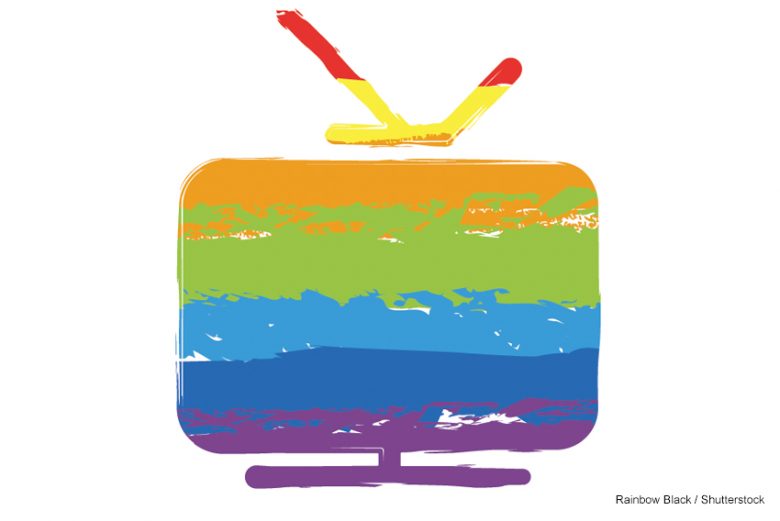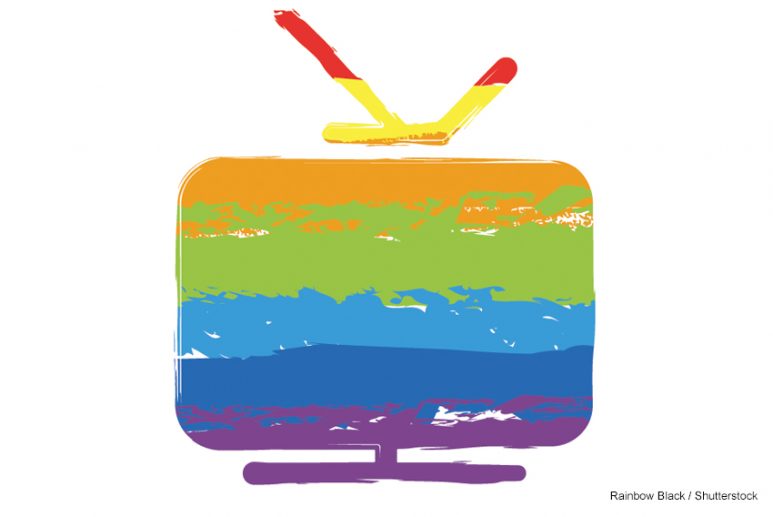By Tamar Shatberashvili
Have you ever googled queer or LGBTQ+ migration?
While migration turns out to be a long-lived phenomenon, LGBTQ+ migrants remain out of sight for many, particularly in Europe. Often perceived as “the other”, initiatives such as queer.ge and a podcast series Gvino, Duduki, Qalebi are deconstructing (in)visible narratives on not only Georgian queer migrants, but also – queer individuals living in Georgia.

“As queer migrants, we share the pain of the Georgian queer community. With this podcast we claim the space we have been left out from and create an alternative reality for Georgian identity to exist”, said Natia Gvianishvili and Tinatin (Tini) Nogaideli, Georgian queer migrants who founded and host Gvino, Duduki, Qalebi.
The podcast series is sprinkled with humour, Georgian music and light conversations on heavy topics including coming out, sex education and the coexistence of national and queer identities.
According to the latest UNHCR report, there are at least 89.3 million forcibly displaced people around the world. This is a symbolic number depicting marginal movements for survival; sometimes for living, other times – only existing. While people finding refuge in countries other than their home nations are often referred to as either immigrants, asylum-seekers or refugees, the term migrant can be used as an umbrella term describing someone who temporarily or permanently moves to a foreign country.
“Nobody should be forced to flee their home for being who they are or loving who they love.”
Unfortunately, what is written in multiple legislative documents such as the anti-discrimination law passed in 2014 in Georgia, does not protect people from an everyday life full of violence and hatred. Khatia Ghoghoberidze, Editor in Chief of queer.ge, shares with MDI her observation from interviews with Georgian queer migrants. She believes there is a dilemma:
“On the one hand, queer individuals continue to leave as a result of which less and less people remain to fight for their rights in Georgia. On the other hand, everyone deserves to live a better life.”
After 17 May, 2013, everything changed.
This date, the International Day against Homophobia, Biphobia and Transphobia (IDAHOT), marks one of the most traumatic events for LGBTQ+ individuals in Georgia, emphasising the exclusionary policies exacerbated by the Georgian Orthodox Church. The government failed to protect queer activists who were met with violence by counter-protesters reported to number in the thousands, including priests. According to the founder of queer.ge, a human rights lawyer and a queer rights activist Nino Bolkvadze, since then queer activism became notably dangerous.
Years-long frustration and the need to create digital platforms such as queer.ge and Gvino, Duduki, Qalebi to produce queer content dates from 17 May 2013. Although this tragic event also marked changes in the coverage of LGBTQ+ topics in the media, Nino told MDI:
“Since 2013 media coverage of LGBTQ+ individuals increased, but the content they have been creating is insensitive and damaging for queer individuals.”
According to Natia’s experience with Georgian media outlets, “on the one hand, they do not pay enough attention to us. On the other hand, they ask for bloody and tragic stories”.
An equally important turning point was on 5 July, 2021, when a cameraman died after being attacked at an anti-Pride march. Lekso Lashkarava was one of more than fifty journalists and media representatives who were attacked that day by far-right groups. This tragedy marked not only another grave violation of human rights, but also a restriction of the freedom of media. Although Nino kept fighting for LGBTQ+ rights in and out of courtrooms, she realised there was a need for a media platform; media that was created by and for queer individuals.
The tragic events of 2013 and 2021 are closely connected to far-right groups in Georgia. Once LGBTQ+ individuals started claiming a public space, homophobia became a central pillar for them. These movements have been propagating against the LGBTQ+ community through the spread of fake news on social media targeting a wide audience. To countering this propaganda machine, queer.ge was created as the media is one of the strongest tools for disseminating inclusive and ethical information.
Both queer.ge and Gvino, Duduki, Qalebi strive for serving positive visibility.
These sites set a tone for inclusive storytelling and invite the audience to think, reflect and learn from and with individuals behind the initiatives. Tini and Natia tell MDI: “We need to create our own narratives.” They contradict the mainstream media depicting their lives as consisting of only violence and marginalisation and want to create space for talking about various moments of joy and happiness their multi-layered identities carry.
The success of both mediums is closely connected to digital feedback.
Digital feedback has played a key role in measuring engagement and dialogue with the target audience the content is created for. Through an invitation to readers, queer.ge attracted more than sixty volunteers, who have been involved in the creation of the platform. This is a rare example of voluntary work in Georgia. Queer.ge welcomes contributions, opinions, feedback, and recommendations. Engagement with the target audience has allowed them to assess the focus, format, and nature of the content. They also prioritise working with regional media outlets, which are on the verge of disappearing because of a lack of funding.
Regarding Gvino, Duduki, Qalebi, Natia and Tini closely observe what topics are relevant for the listener and together with the medium of a podcast, they create content on sex-related topics that enjoy popularity on social media platforms.
Simultaneously as media in Georgia continues to be polarised and politicised, initiatives such as queer.ge and Gvino, Duduki, Qalebi face financial and organisational challenges in order to continue safe, inclusive and technically supported operations. Giorgi Baskhajauri, a journalist on queer.ge, noted that when it comes to covering queer migration, it is difficult to find a balance between avoiding the depiction of migration as an only way of survival and, on the contrary, being mindful of the fact that for some migration can be the only way out. Equally important challenges are coming out, socioeconomic difficulties and professional and activist burnout, because of which a lot of queer individuals leave the country for survival. Giorgi added:
“When you’re a queer individual and are consumed by these topics on an everyday basis, it eats you up and does not allow you to see other parts of your life and yourself.”
Some continue their fight for equal rights in Georgia, and others who have left engage in digital activism like Natia and Tini. Being physically distant from violence and the everyday reality of queer individuals in Georgia, they take an opportunity to talk about taboo topics of sex and sexuality in Georgian and reminisce about experiences closely connected with their Georgian identity. Tini shared with MDI:
“If we want to keep traditions and Georgian Supra alive, it needs to be updated according to lived realities and our realities are connected to queerness.”

